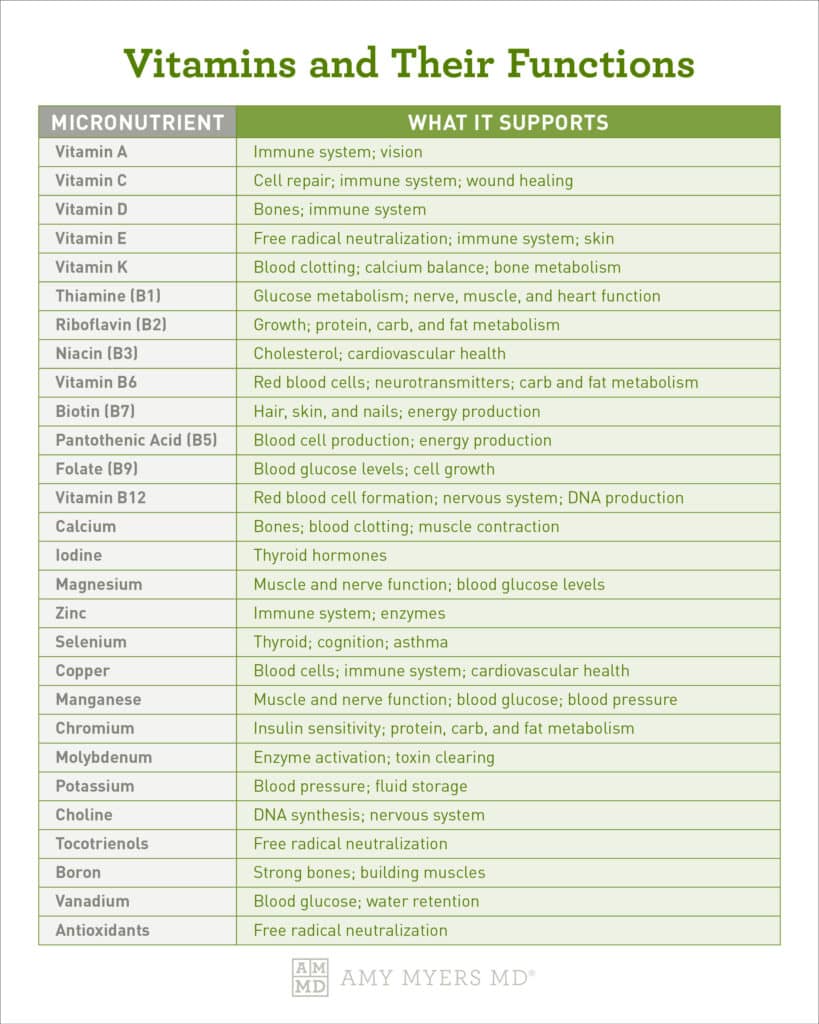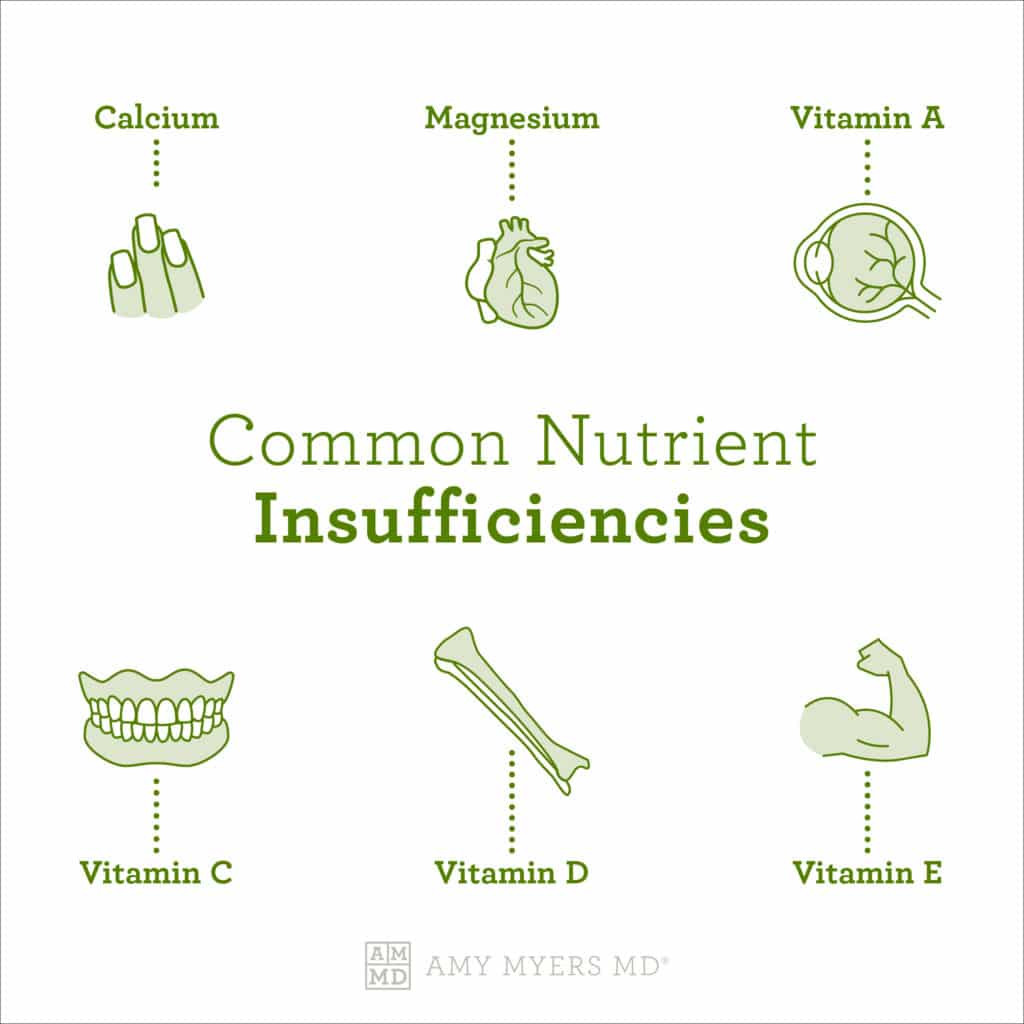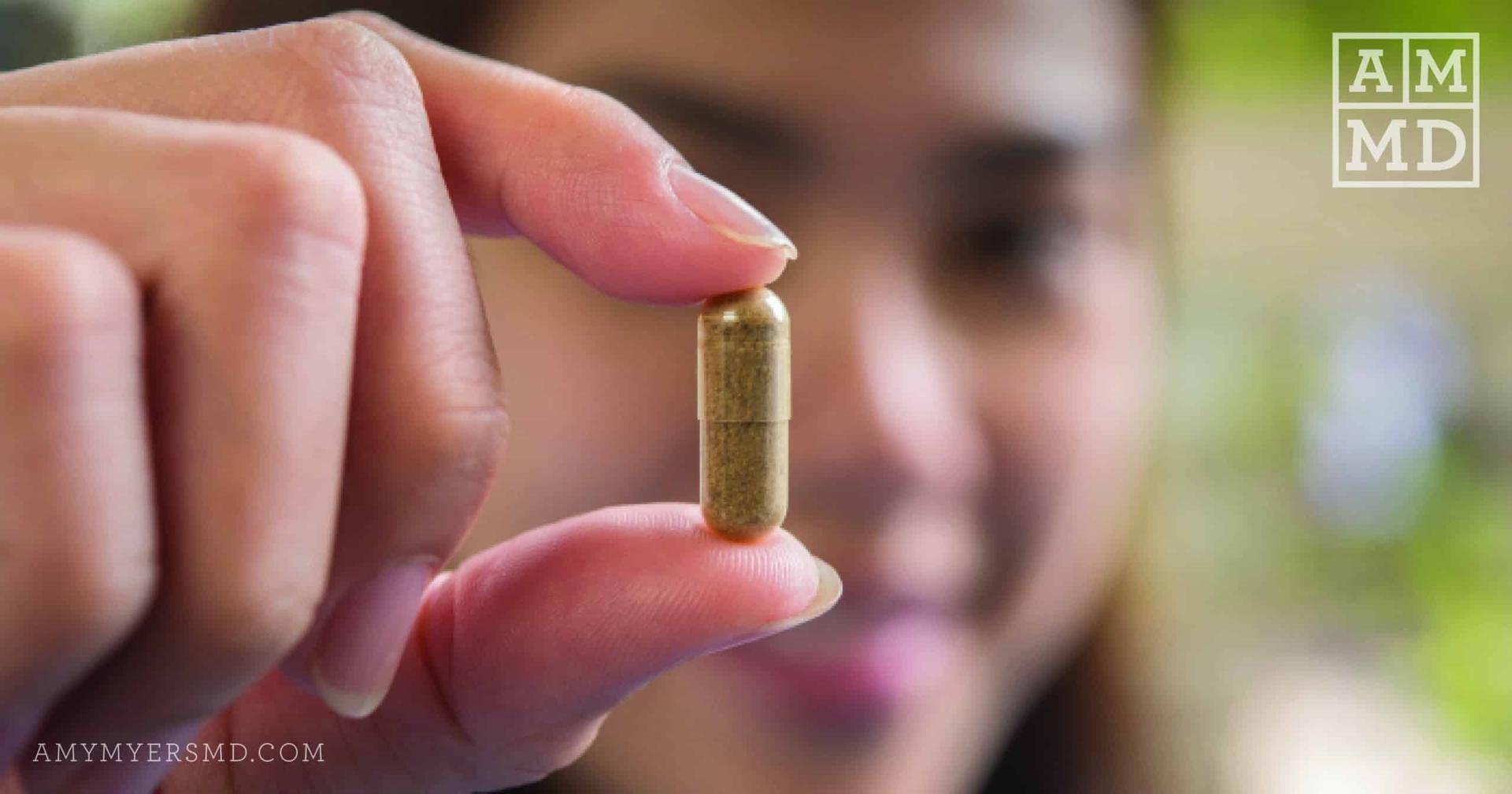Do you remember taking a brightly-colored chewable multivitamin when you were a kid? The purpose was to combat nutrient deficiencies, but you probably gave them up long ago. Today’s shelves are lined with hundreds of multivitamins in different forms. Are they effective or a waste of money?
Incorporating a multivitamin into your daily routine provides health benefits such as increased energy levels, improved mood, and a boost in cognitive health. With so many options available, deciding which one to take—if any at all—can be confusing.
In this article, I dive into the benefits of a multivitamin and whether it’s better to take one multivitamin or several different vitamins. First, let’s go over the many benefits of a multivitamin.
Why Do You Need Vitamins?
For optimal health, you must incorporate the essential nutrients your body requires to function at its best. You’ll also need nutrients that guard your body against mineral and vitamin deficiencies. A few key vitamins to keep in mind are vitamin B-6, vitamin D, vitamin C, and vitamin B-12.
 Dr. Amy Myers
August 11th, 2019
https://content.amymyersmd.com/article/when-taking-multivitamin/When To Start Taking a Multivitamin – Infographic 2 – Amy Myers MD®
Dr. Amy Myers
August 11th, 2019
https://content.amymyersmd.com/article/when-taking-multivitamin/When To Start Taking a Multivitamin – Infographic 2 – Amy Myers MD®Food sources such as organic fruits and vegetables combined with grass-fed meats and wild-caught fish provide a plethora of vital nutrients to cover these daily needs. Yet it can still be challenging to get everything your body needs for optimal health, even if you’re following a balanced diet. For example, our modern sources of produce contain far fewer nutrients than they used to. According to a recent report, today’s conventionally-farmed crops contain 10-25% less zinc, protein, calcium, vitamin C, and other nutrients than they did even 40 years ago. 1
Modern cultivation prioritizes fast growth, increased size, and improved pest resistance in the produce we consume. While that sounds acceptable at first glance, the truth is the increased usage of fertilizer decreases mineral content, and even worse, can incorporate toxins into our diets. While it can be argued that modern agriculture has led to a boost in available food supply, today’s practices have stripped nutrients from the soil where our crops grow. This is called soil depletion, and each new season makes the problem bigger.
 Dr. Amy Myers
August 11th, 2019
https://content.amymyersmd.com/article/when-taking-multivitamin/
Dr. Amy Myers
August 11th, 2019
https://content.amymyersmd.com/article/when-taking-multivitamin/In addition to modern farming, our livestock is farm-raised—this means that the meats, poultry, and fish we consume are littered with antibiotics and growth hormones.
It’s also known that lifestyle impacts your body’s need for an effective multivitamin. If you regularly consume foods containing unhealthy fats, toxins, and chemicals, you’re not only displacing healthy food; you may be depleting nutrients from the beneficial foods you eat. 2
When your body processes sugary, processed foods that lack critical vitamins and minerals all that energy depletes the vital nutrients needed for cell repair, enzyme production, and more.
Additionally, if you follow a diet restricted by your current health condition, nutrient intake may already be imbalanced. Furthermore, studies show that those with anxiety or depression are more likely to be malnourished. This is because these people may eat less diverse, nutrient-rich foods. 3
Now that we’ve informed ourselves of the problem, let’s get into the benefits of multivitamins.
What are the Best Multivitamin Ingredients?
In order to enjoy the benefits of a multivitamin, a good formula should contain the essential vitamins and minerals at proper levels to ensure general wellness and detoxification. I recommend looking for a multivitamin that includes the following micronutrients:
Is 100% of the RDA enough?
I recommend relatively large doses of specific vitamins and minerals because I find that the USRDA (the recommended daily allowance) for many nutrients isn’t enough to be genuinely beneficial. Some nutrients, such as vitamin C and B12, pass through the body quickly and cannot be stored, yet a deficiency can damage the body.
Higher levels than the USRDA for vitamin C, for example, can support the repair of tissues, the formation of collagen, your immune system, wound healing, and the maintenance of cartilage, bones, and teeth. 4 High intakes of vitamin C are generally well tolerated, so my multivitamin contains 1,000 mg of vitamin C, 1111% of the USRDA, yet half of the established upper tolerable limit. 5
Vitamins and minerals interact with the food you eat. As you digest your food, digestive enzymes are produced to break down nutrients. The enzymes produced absorb nutrients from the multivitamin. I recommend taking it with food instead of taking vitamins on an empty stomach to get the most benefits of a multivitamin.
Multivitamins come in many different forms, including:
- Capsules: This is generally the best form since no added ingredients are needed for flavor. With capsules, nutrients that have a metallic taste can be incorporated without negatively impacting flavor. Capsules also include the broadest range of nutrients. This is the form I chose for The Myers Way® Multivitamin.
- Liquid: Liquids vitamins are an effective option for adults who find it difficult to swallow capsules or tablets. However, they are often alcohol-based, have a shorter shelf life, and don’t often work well as a comprehensive multivitamin solution.
- Chewable: Children who haven’t yet learned how to swallow pills benefit most from chewable supplements. However, these chewables often contain artificial flavors and chemicals. In addition, these added flavors serve as a limiting factor on which essential nutrients can be incorporated, such as iron. Remember—this applies to both childrens and adult chewable vitamins!
- Gummy: This form of multivitamin is typically formulated for taste, not nutrition. This form of multi often contains several additives, such as sugar. Gummies often lack essential nutrients, and the vitamins are often even sprayed onto the outside of the gummy itself. Moreover, the gelatin that provides the gummy its texture can bind to these nutrients, making them more difficult for your body to break down and absorb.
The Benefits of a Multivitamin
Your body requires more than 50 nutrients for the thousands of metabolic processes it requires each day to maintain health. A great multivitamin provides protection against nutritional deficiencies, improves energy and performance, and guards against disease.
Unbalanced diets often neglect whole grains, fruits, and vegetables. Multivitamins help bridge this gap. However, I emphasize that multivitamins are not a shortcut to better health!
You must rely on more than just supplements to make up for a poor diet. The benefits of a multivitamin serve as additional support through lifestyle changes.
If you’re ready to incorporate an effective multivitamin into your daily regimen, you may experience the following benefits:
Increased energy levels
If your body is lacking in critical nutrients, it needs to work harder to perform even the simplest of tasks. This can lead to fatigue and more serious health problems. A daily multivitamin works to help maintain a healthier lifestyle by improving your energy.
Improved mood
Studies have indicated a positive correlation between taking a daily multivitamin and your mental health. The B vitamins and minerals it provides may help to reduce stress and anxiety. Your body needs B vitamins to convert food into energy—a multivitamin that provides these can keep your nervous system functioning at a healthy level.
An impact on cognitive health
Your brain requires vitamins, minerals, and other key nutrients to function well. It’s understood that nutrient deficiencies may increase your risk for cognitive decline and age-related dementia. 6
Recent studies have shown that B vitamins may play a critical role in age-related cognitive impairment and decline.
Does One Multivitamin Work for Everyone?
When deciding to incorporate an effective multivitamin into your daily regimen, you should first take a look at your current lifestyle and dietary choices. The Myers Way® Multivitamin is formulated with an effective blend of vitamins and minerals available in their most absorbable form; however, your current situation may require a specific approach…
Pregnancy
Women planning to get pregnant or already in the stages of early pregnancy should almost always take prenatal vitamins, and consult their physician before making any changes. Often, prenatals contain more significant amounts of folic acid that support fetal development (as well as additional calcium, iodine, iron, and Vitamin D). 7
Exercise
The level and intensity of your physical fitness routine can impact your needs. If you’re a high-performance athlete, you may need to consume more B Vitamins, calcium, vitamin C, zinc, potassium, vitamin E, and magnesium to ensure more effective workouts and recovery.
Low levels of B vitamins may reduce the performance of athletes that engage in high-intensity physical activity. Potassium can support recovery time by promoting optimal muscle and nerve function. Because of its high potency and bioavailability, The Myers Way® Multi may be a good option for those who enjoy a challenging workout.
Thyroid Dysfunction
Those with thyroid dysfunction also need a specially-formulated multivitamin. The Myers Way® Multivitamin was physician-formulated with thyroid dysfunction in mind, including Hashimoto’s and Grave’s disease.
It’s packed with micronutrients in forms your body can most effectively utilize, and in the amounts your thyroid needs. It contains optimal levels of thyroid supporting minerals such as zinc, selenium, and iodine, as well as vitamins C and E—and other free radical scavengers that support an optimal hormone balance.
Weight Loss
The Myers Way® Multivitamin is perfect for anyone looking to support optimal weight. It contains powerful nutrients that help your body to regulate hormone balance, break down fat, and control satiety. 8 There’s no other multivitamin on the market that works harder to give you targeted support in maintaining and reinforcing your optimal weight goals.
Why Take The Myers® Way Multivitamin
The Myers Way® Multivitamin is ideal for so many people.
When I custom formulated this incredible multi, I put over a decade of effort into developing a solution that works. Based on my exhaustive research, I’ve found that the highest benefits of a multivitamin are achieved through nutrient-rich forms of methylated B vitamins, chelated minerals, vitamin D as cholecalciferol, and more.
Perhaps equally important is what a multivitamin does not contain. You’ll never find gluten, wheat, dairy, corn, soy, GMOs, or toxic ingredients in any of my optimal health solutions.
It would be a mistake to not mention that The Myers Way® Multivitamin contains vitamin B12, which helps support your red blood cell health. It also contains a potent serving of zinc, critical for supporting optimal immune function. I’ve also included the appropriate selenium levels to ensure your metabolism is fully supported each and everyday.
The Myers Way® Multivitamin is perfect for anyone who:
- Avoids dairy products
- Chooses to support optimal hormone balance and weight loss
- Desires support for healthy thyroid and adrenal function
- Doesn’t eat enough organic fruit and vegetables
- Follows the Standard American Diet (SAD)
- Follows a vegan diet
- Has MTHFR mutations and wants to promote optimal methylation
- Wants to obtain optimal amounts of the nutrients their body needs to thrive
The Final Word
Taking a multivitamin can provide health benefits such as increasing your energy levels, boosting mood, and positively impacting cognitive health. It’s important to remember that multivitamins are not a shortcut for better health. You must rely on more than supplements to make up for a poor diet. The benefits of a multivitamin are most effective when lifestyle changes are made.
With so many options available, deciding which multi to incorporate may be confusing. That’s why I formulated The Myers Way® Multivitamin as the most bioavailable form of vitamins and minerals—in the forms your body needs to function at its best.
“The Myers Way Multivitamin is one of the best supplements I have tried! Taking this supplement gives me boosts of energy which is great considering my fitness routines. It does not cause me any digestive issues as well.
Trying this myself, I can say that it is safe and effective. I’ve done research on many other supplements and this multivitamin is one of those that contain a combination of vitamins and minerals that are good not only for those who have thyroid issues, but also for fitness enthusiasts like me. Also, considering its natural ingredients, I can say that this is a great buy!”–Isaac Robertson, Founder, Total Shape
Article Sources
- Nutrient Density. Rodale Institute. 2023.
- Added sugars drive nutrient and energy deficit in obesity: a new paradigm. James J DiNicolantonio and Amy Berger. Open Heart. 2016.
- Nutritional Vulnerability in Older Adults: A Continuum of Concerns. Kathryn N. Porter Starr, PhD et al.. HHS Author Manuscripts. 2015.
- The Benefits of Vitamin C. Kathleen M. Zelman, RD, LD, MPH. WebMD. 2022.
- Vitamin C in health and disease. Samer A Bsoul, Geza T Terezhalmy. J Contemp Dent Pract.. 2004.
- Daily multivitamin may improve cognition in older adults. National Institute of Aging. 2022.
- Maternal Diet and Nutrient Requirements in Pregnancy and Breastfeeding. An Italian Consensus Document. Franca Marangoni et al.. Nutrients. 2018.
- ”[Micronutrient.
